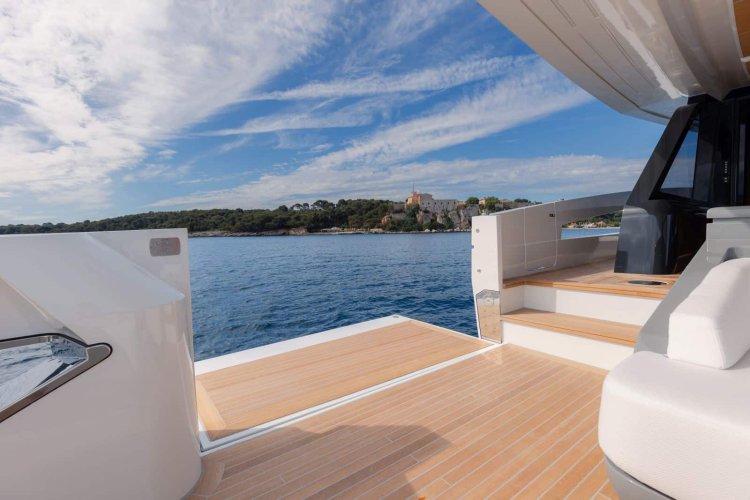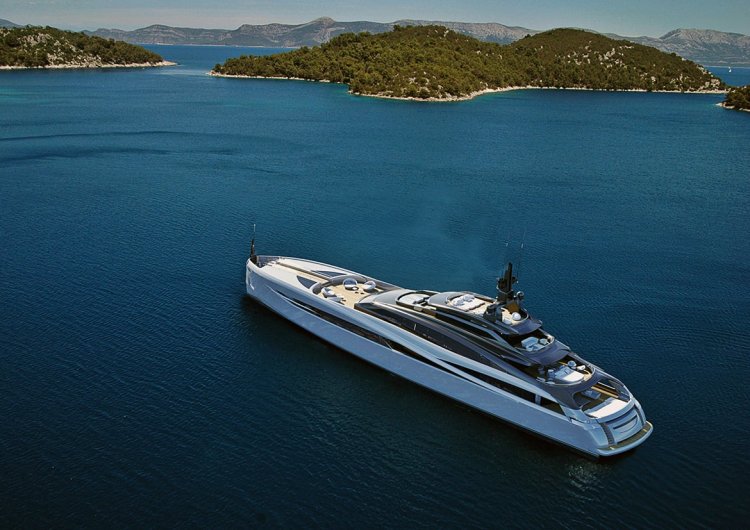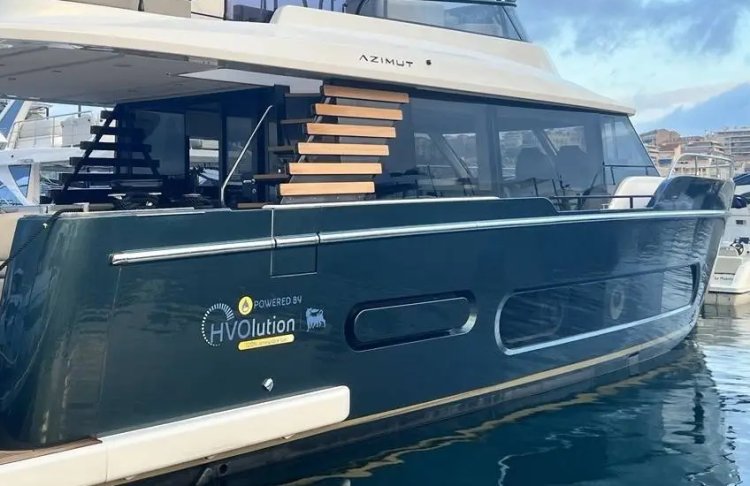Reduces emissions by 80%.. The first yacht from the Italian “Azimut” that runs on biofuel

In the heart of the old port of Cannes, a dark green yacht is moored, arousing the curiosity of many visitors and specialists at the Cannes International Yacht Show.
Perhaps the first thing that draws attention to this yacht are the letters “HVO” drawn on it next to the logo of the Italian energy giant “Eni”. These letters mean that this yacht uses biofuel for sailing.
“Magilano 60” is the first biofuel yacht produced by the Italian “Azimut-Benetti” group, famous for building luxury yachts, which is what prompts many potential customers and those interested in the industry to learn about it.

Reduce emissions
“Magilano” was launched at the Cannes International Yacht Show after the 60-foot yacht roamed the shores of the western Mediterranean throughout the summer of this year with the aim of testing it and ensuring its ability to sail on biofuel without affecting the engines to which “Azimut” did not make any modifications. The new yacht reduces Emissions are reduced by 80 percent compared to diesel counterparts.
Azimut-Benetti, which is headquartered in the Italian city of La Spanzia, devoted a large part of its annual press conference to talking about its sustainability projects, or “awareness,” as Giovanna Vitelli, president of the giant company, likes to call the project. Vitelli said, “We prefer to use the word awareness.” On the word sustainability.
Marco Valle, CEO of the company, said in an interview with “CNN Al-Eqtisadiah” in the old port of Cannes, “We are committed to the environmental dimension, and we are well aware that if we do not work on this aspect, we will be forced to work on it later. “I don’t know when exactly we will reach a zero carbon footprint, but we are continuing to work towards that.”

Methanol and hydrogen as alternatives
The Italian group has conducted studies over the past years to choose the best alternative fuel that can be used to reduce carbon dioxide emissions.
Massimo Santrelli, professor of advanced energy systems at the Faculty of Engineering at Politecnico University, said in a press conference organized by the Italian group in Cannes, France, “The choice was made on biofuels, methanol and hydrogen to conduct the study and find out which one would be realistic for use.
I concluded that methanol cannot be used in the near term due to... Critical issues related to production and distribution, but it could be a promising alternative in the long term. As for hydrogen, it is considered a very distant alternative due to the difficulty of storing it on board yachts and due to its safe management, and therefore a biofuel solution was adopted that does not require any modification to the engines, and does not pose a threat in terms of safety.”
“Today, biofuels are the only viable alternative to fossil fuels, and at present the most effective way to contribute to reducing CO2 emissions from the yachting industry,” Santrelli added.

Environmental criticism of the yachting industry
The yachting industry is subjected to a lot of criticism because of its engines’ hunger for fuel, which increases its carbon footprint, but the “Azimut” group has been seeking for nearly two decades to reduce fuel consumption on board its yachts.
In 2006, it launched the first hybrid yacht that operates with electricity alongside diesel, and also launched In 2015, it launched its low-emission series for the category of yachts between 15 and 40 meters in length, and the Azimut Group has recently repeatedly announced that its yachts cause 30 percent fewer emissions compared to the products of its competitors.
Marco Valle regrets the lack of sufficient clarity regarding the energy consumption of yachts. He says, “When we buy a car we know very well how much fuel it will consume, but this data is not accurately available in the world of yachts, and that is why we decided to accurately disclose the results of our research on the consumption of our own yachts and to our colleagues in the industry, and we will make it available.”
Information and research will be made accessible to all those working in the industry and those interested in yachting, in order to contribute to reducing global warming and increasing awareness of it.”


 Shrouq
Shrouq 












